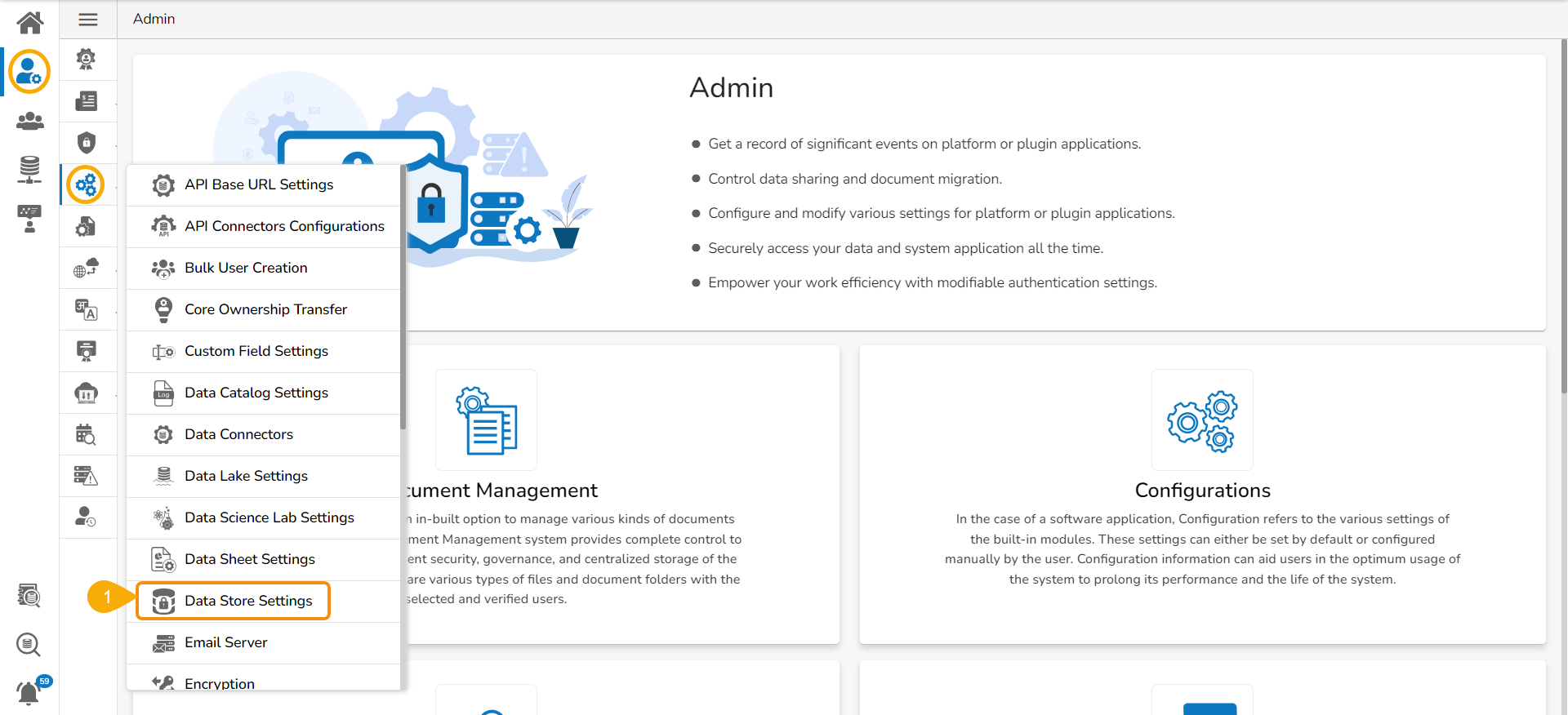Data Store Settings
Configure the database settings for your Data Stores to get saved.
Configuration Data Store with Mongo as selected DB
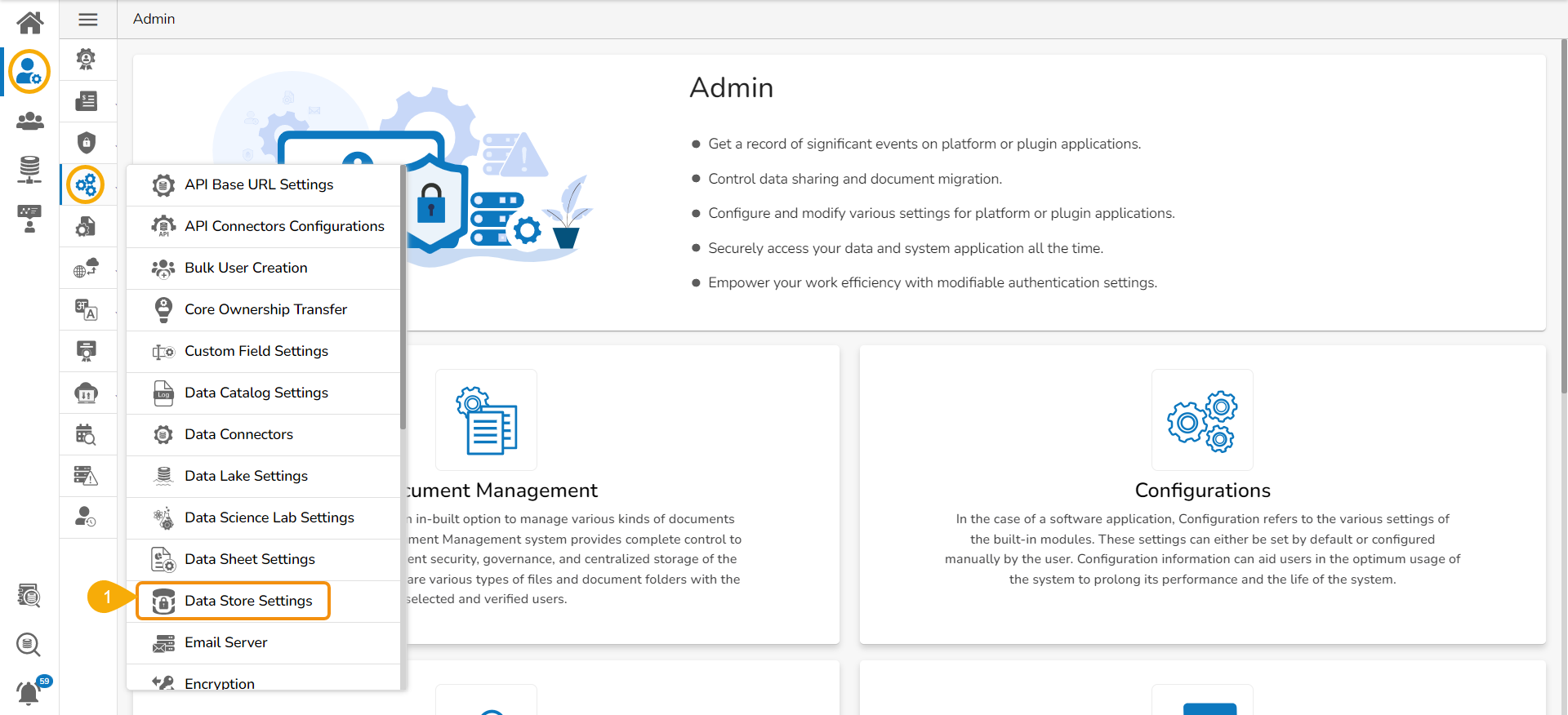
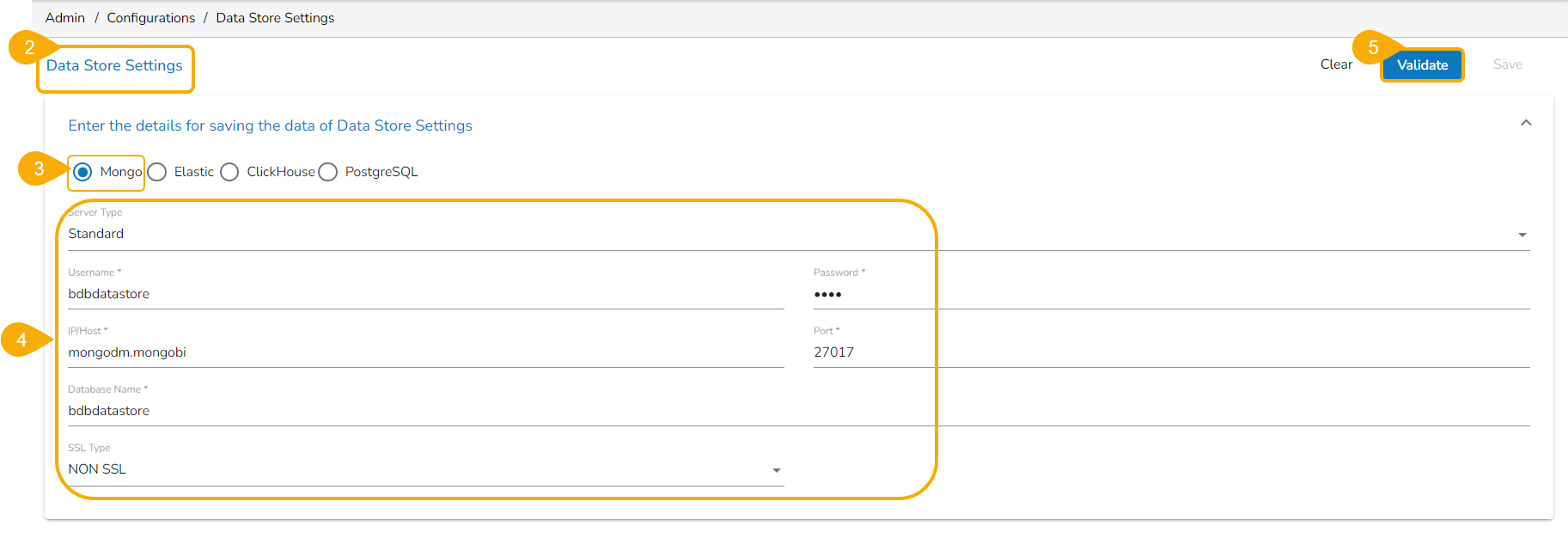



Configuring Data Store with Elastic as selected DB
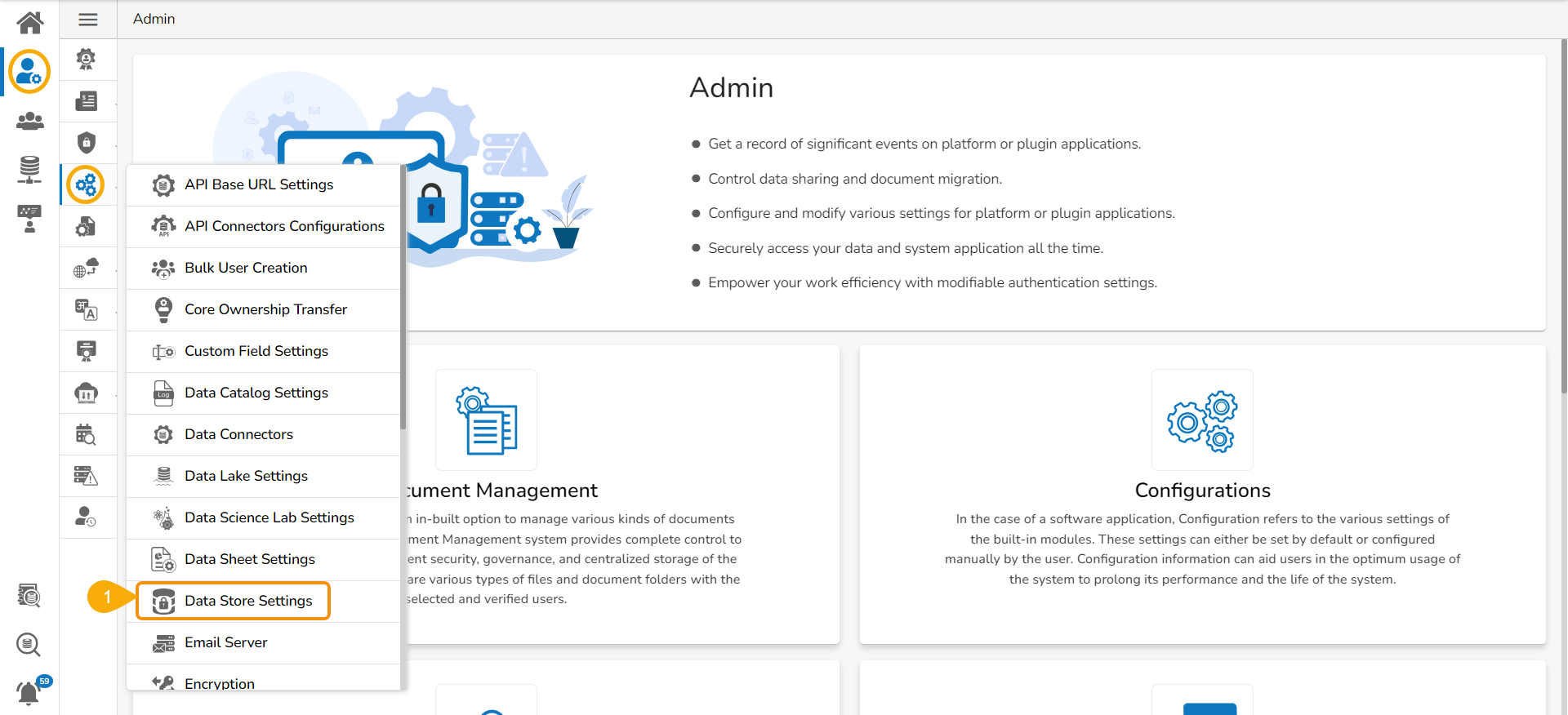
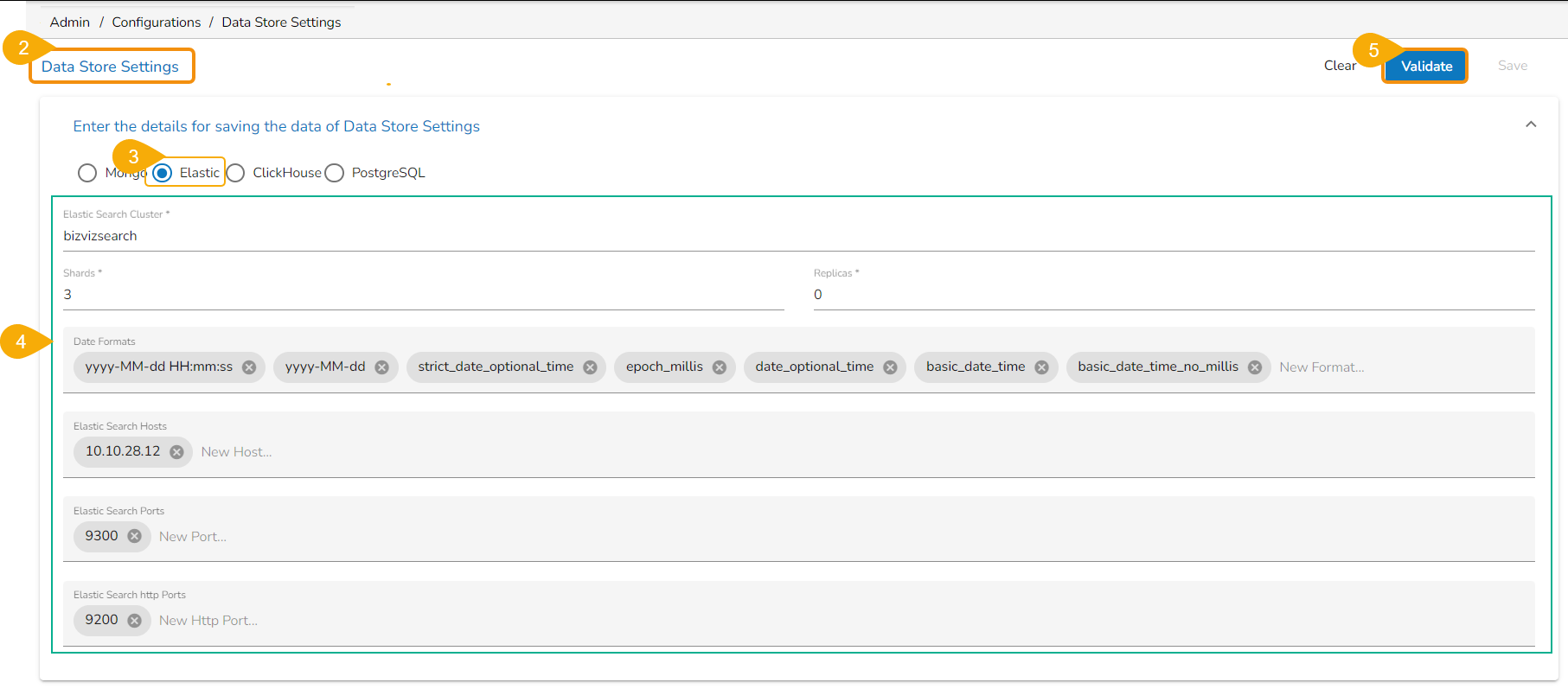


Configuring Data Store with ClickHouse as selected DB

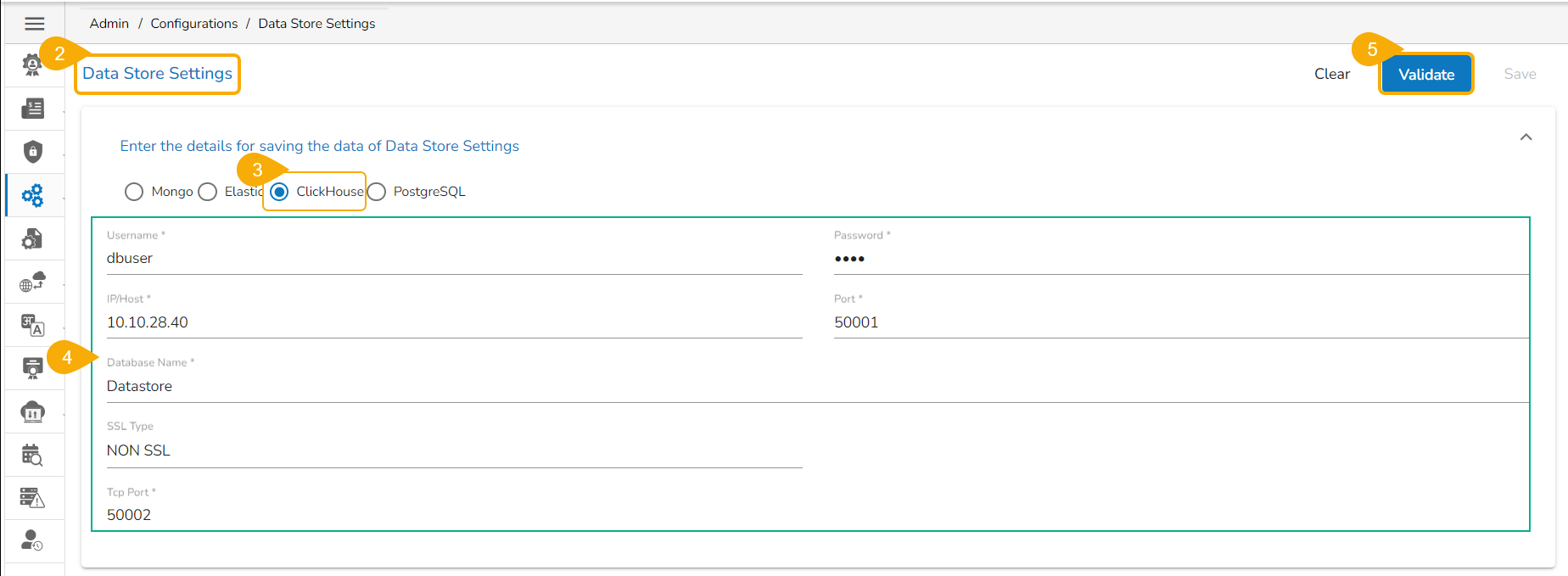
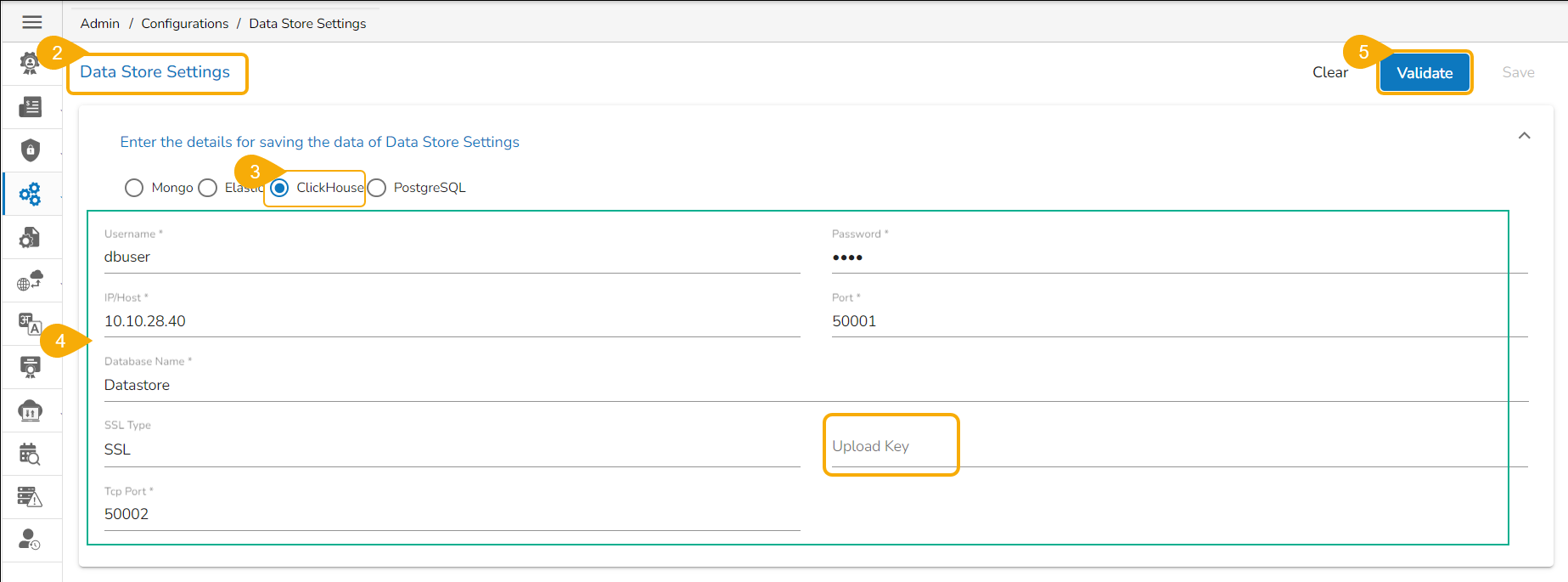


Configuring Data Store with PostgreSQL as selected DB
